Mary Oliver:
Sean Singer:
The Sharpener is a reader-supported newsletter. If you get value from these newsletters and want to support my work I encourage you to take out a paid subscription.
Stephen Dunn:
Tarfia Faizullah:
Joy Harjo:
Muddy Waters, “Country Blues (Number One),” rec. 1941:
About Sean Singer
Sean Singer Editorial Services
Subscribe to The Sharpener
The paid-subscriber version of The Sharpener includes weekly installments of craft pieces, approaches to writing problems, topics in contemporary publishing for writers, and biographical features on poets I consider important.




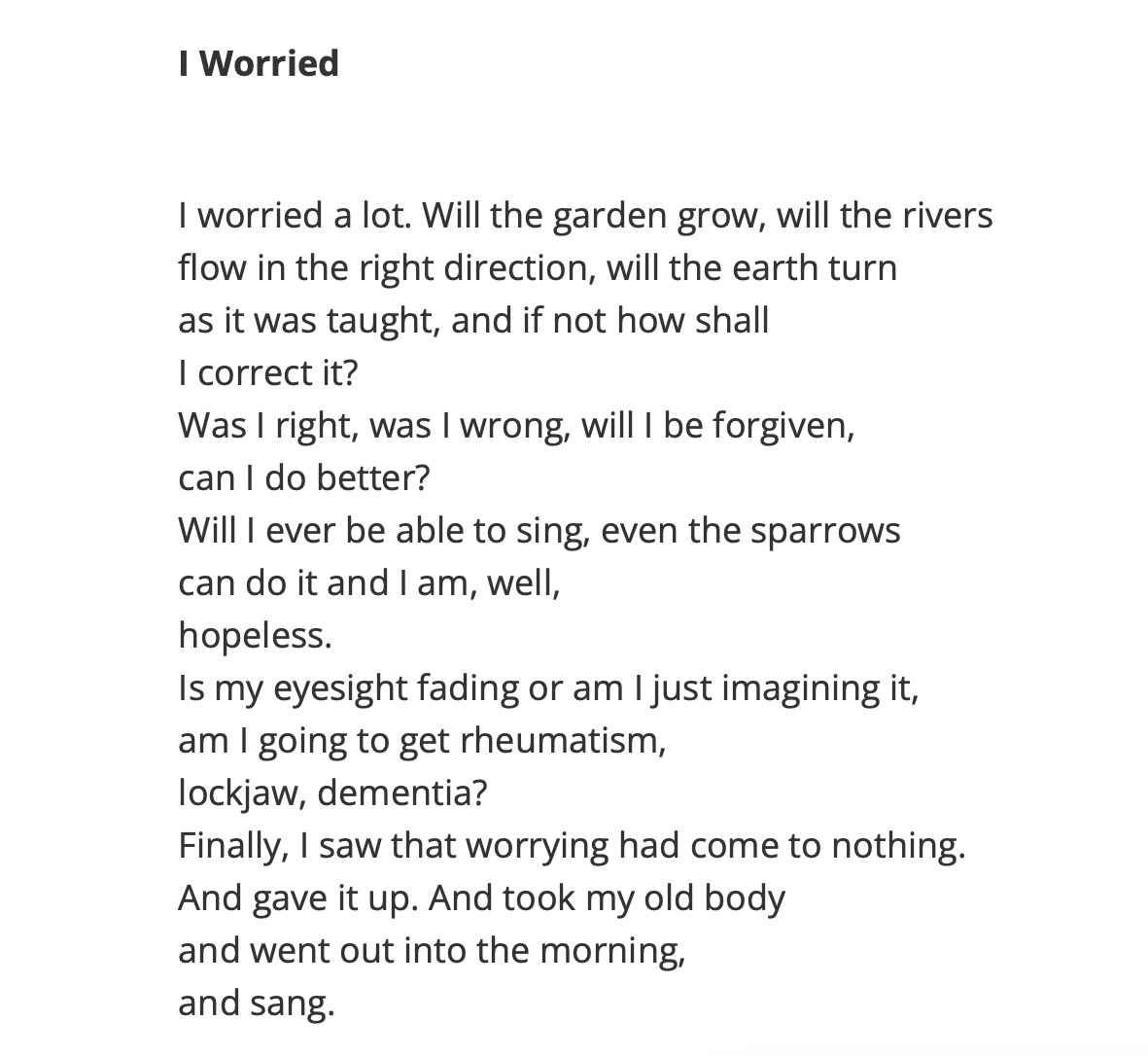

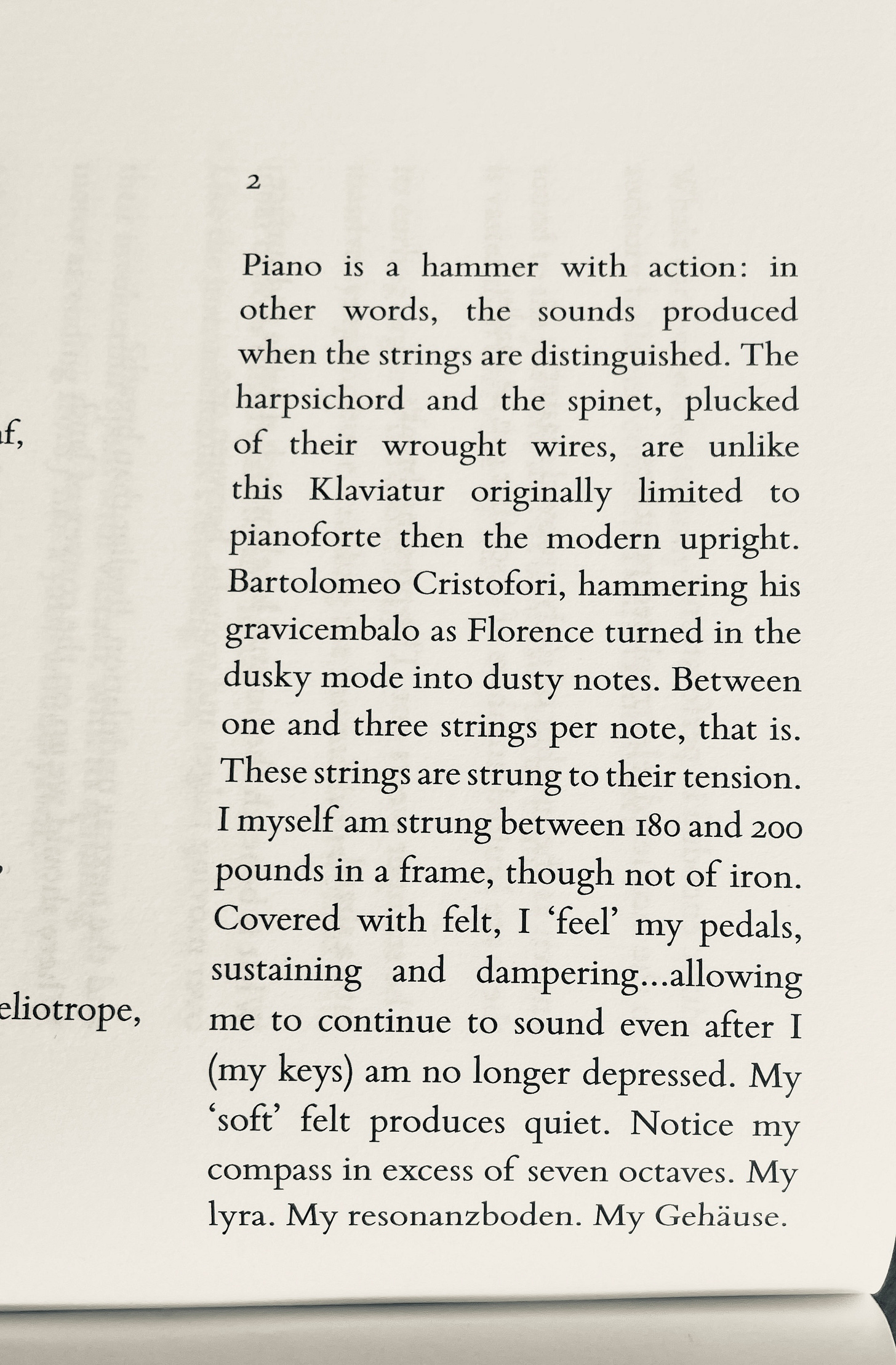
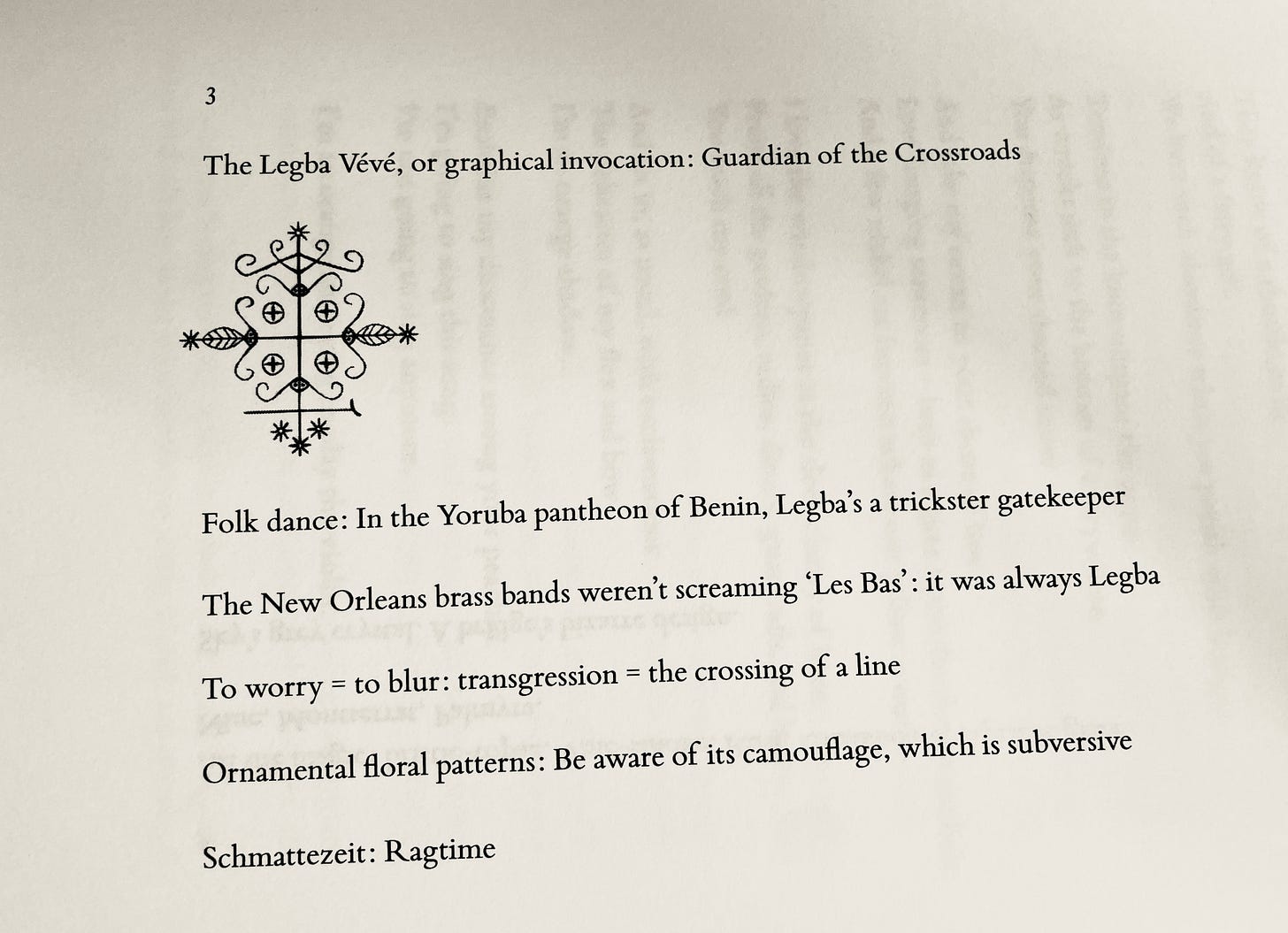
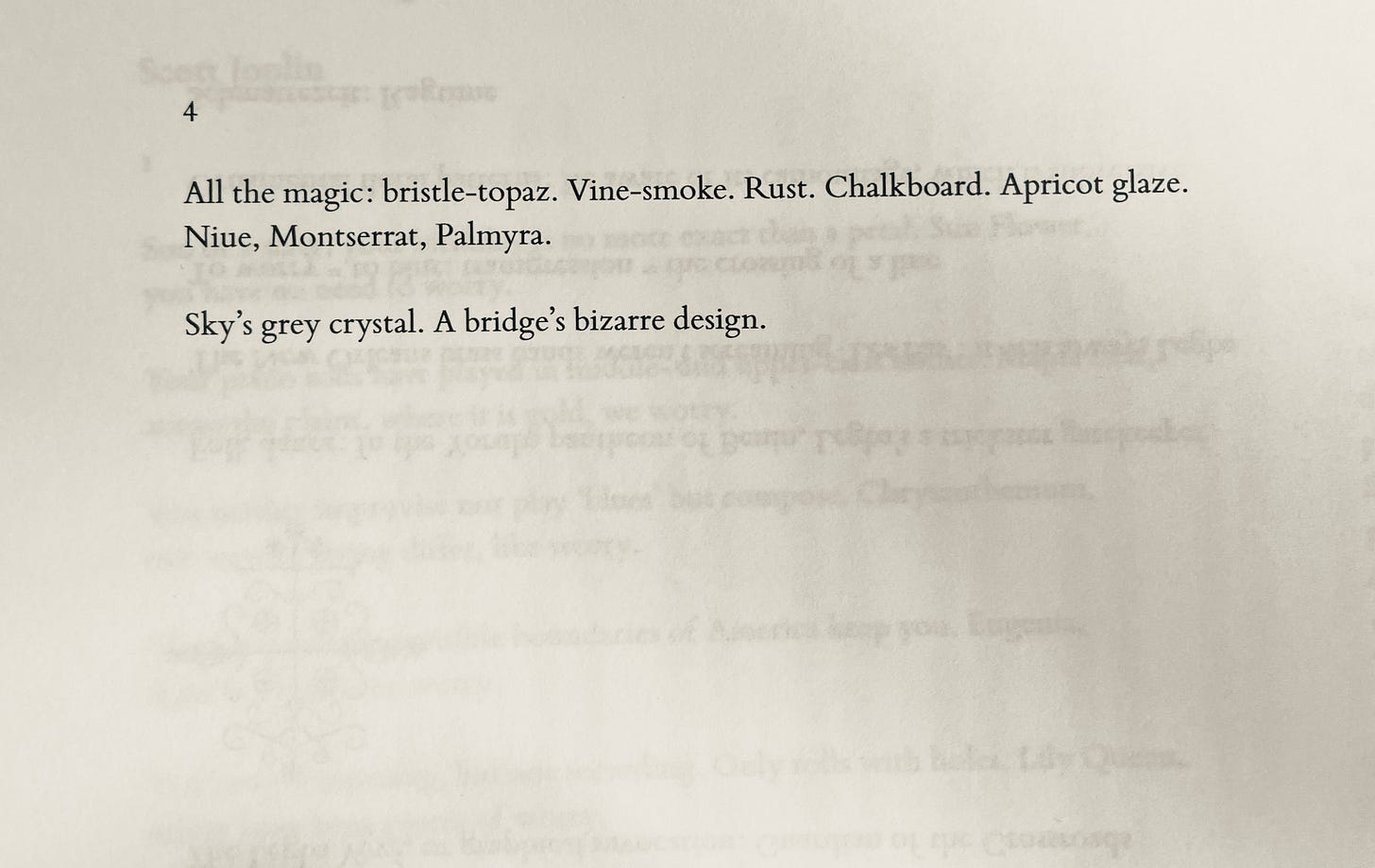
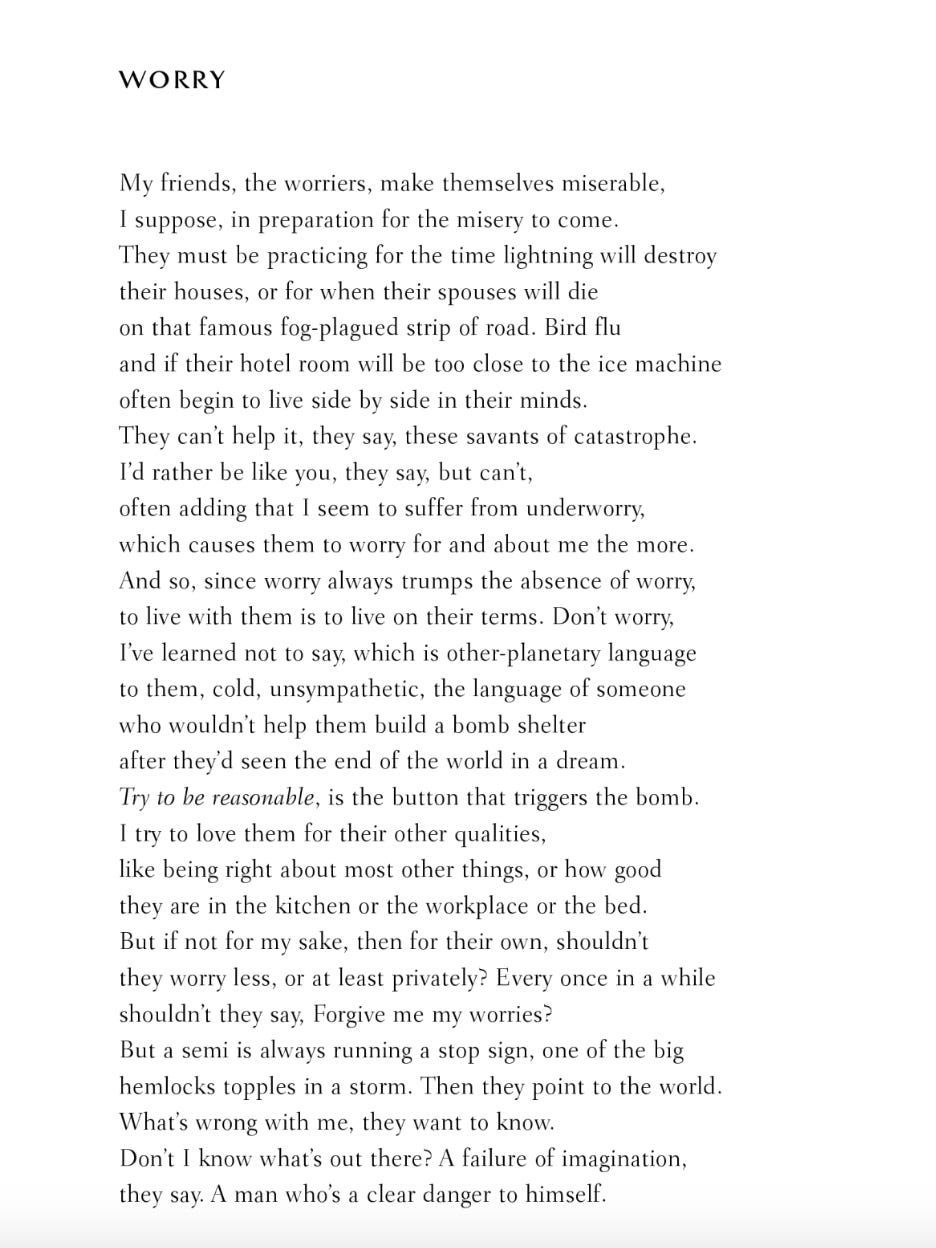
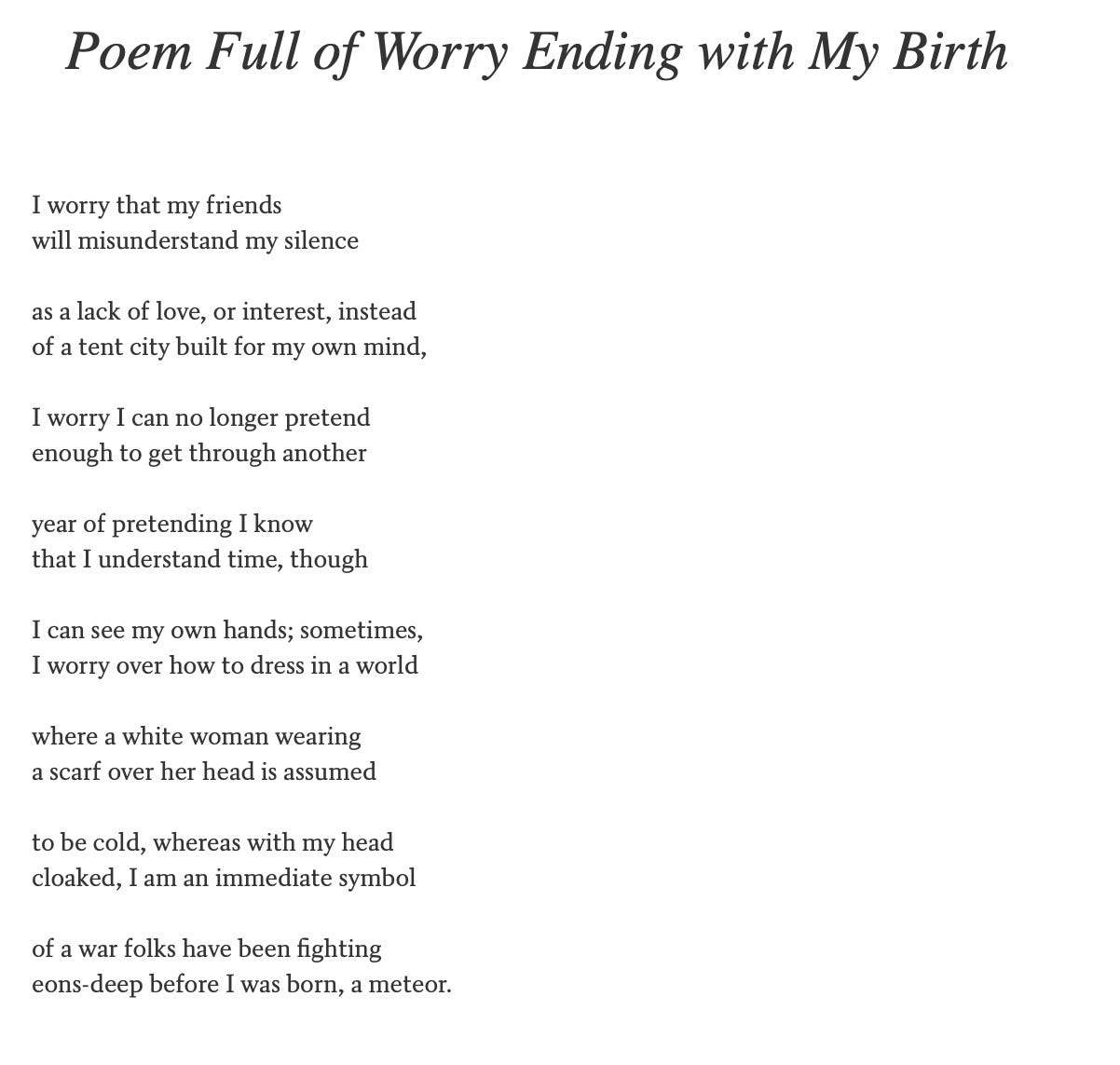
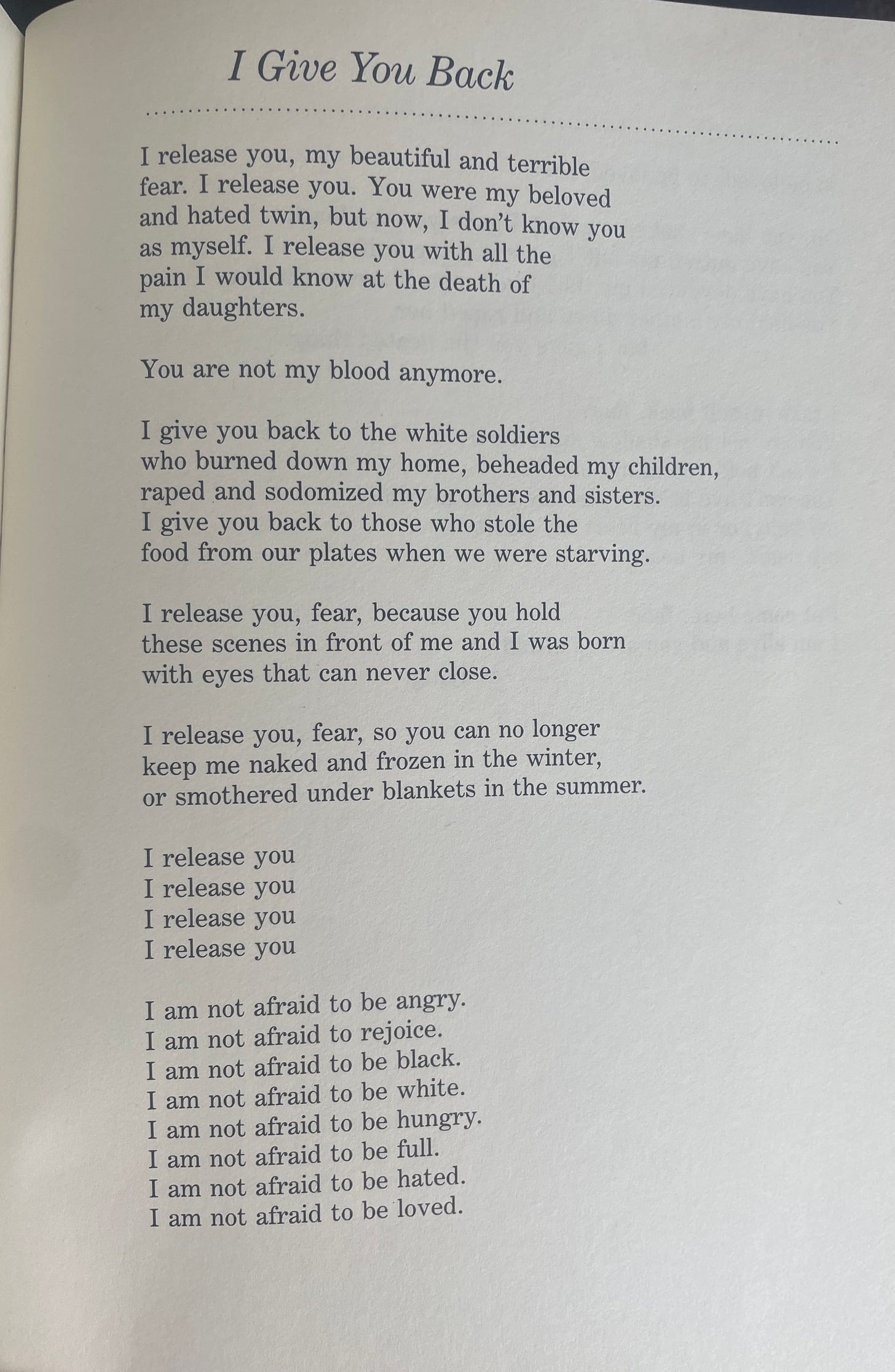
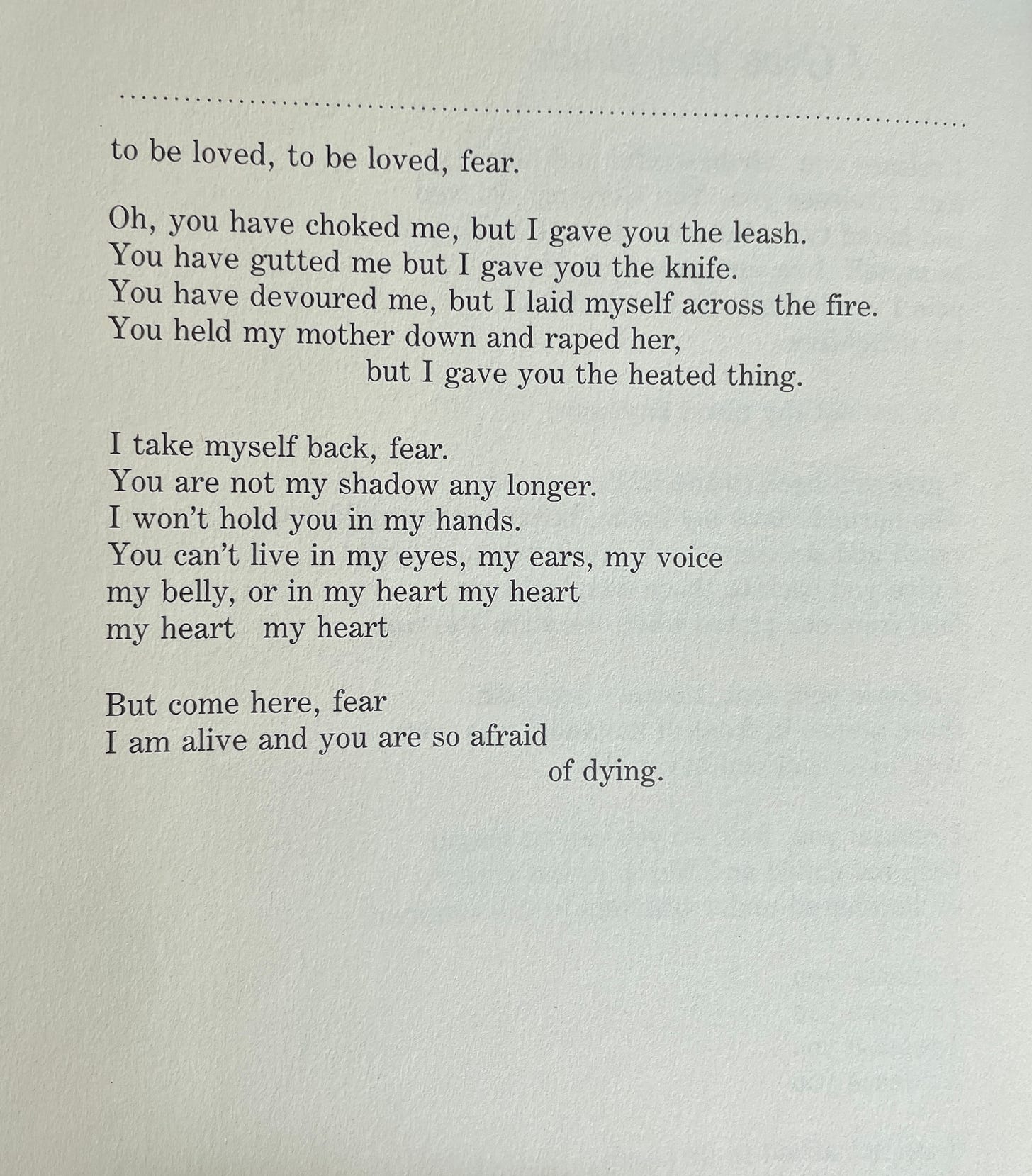
Oliver--"taught" takes me out of the poem because it's far from how I think of agency and the earth. (Personal reader issue). The more-than-human agency (the natural world) does not require human influence. There is "worry" that physics will somehow change all the rules at any moment in that the earth could stop turning. There is good insight to the outcome of "worry"--it's a kind of self-harm resulting in nothing but feeling bad. And the speaker ultimately aligns her animal self with the animal self of sparrows--those while in birdsong we could likewise assume are not worrying.
Singer--The first section is heavy with the last "worry" listed--heavy that it has been physical intimacy--human connection--that set the course to a mental and physical hell & thereby a complete loss of mental, emotional, & physical agency. I love that in the book the last verb in the poem preceding this one is "move" because dancing is an impulse of music. & the "dance" is by turning the book to read this poem from the last. Parallelism of 7 across 3 sections (the last is 7 if counting the graphic as a line) with the "excess" of sound-sense captures what's in all art that moves us. WT Mitchell calls it "surplus value." In this music has its own and separate life as semiotics do in the poem. We can feel and be moved by the poem's dance from this oversaturation--the "more than" that's always already there. Aside from this philosophical nexus of body and space, I love the poem's euphony. The space between the poem's body and the music creates a liminal space in which Joplin currently resides in music and poem.
Harjo--I will think on the love and fear in this poem. Presenting fear via the negative & refrain "I am not..."& with the # of times "afraid" is mentioned makes me question if the love in this poem has truly processed and overcome fear. The more fear is denied, the more it seems to take over the poem--and love.